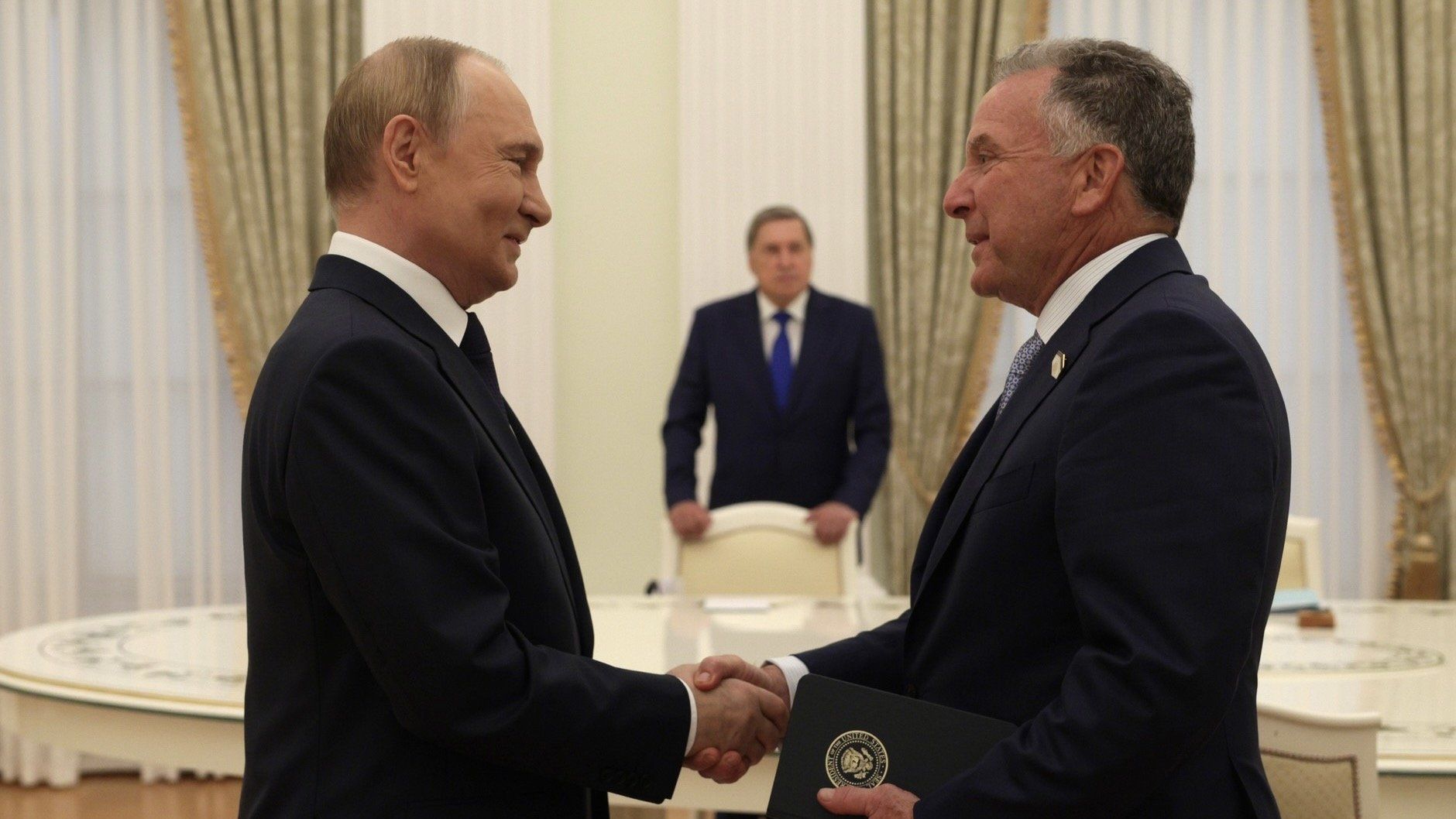US envoy meets with Putin ahead of sanctions deadline
US special envoy Steve Witkoffmet with Russian President Vladimir Putin at the Kremlin on Wednesday ahead of US President Donald Trump’s Friday deadline for the Kremlin to end the war or face new US sanctions. Neither side has revealed details about the talks yet, but Putin is reportedly unmoved by Trump’s threats, seeing his own war aims as being worth the price of further economic pain. The Witkoff-Putin talks came a day after Trump and Ukrainian President Volodymyr Zelensky discussed Russia sanctions and increased defense cooperation.
US tariffs cause political trouble in Africa’s largest economy
South African President Cyril Ramaphosa is facing a backlash from his coalition partners over his failure to deftly handle tariff negotiations with Trump. In May, Ramaphosa made a trip to the White House where he sought to allay the US president’s trade concerns and push back against largely fabricated stories about a “genocide” of South African white farmers. None of it worked — Africa’s largest and most industrialized economy is under a 30% tariff, the highest rate on the continent.
Lebanon’s Hezbollah rejects calls to disarm
Hezbollah on Wednesday said it would be a “grave sin” for the Lebanese government to try to take away its weapons. The defiant statement comes after Lebanon's cabinet, acting under US pressure, ordered the army this week to draft a plan by year’s end to place Hezbollah’s weapons under state control. Iran-backed Hezbollah faces its weakest moment in years: Israeli strikes have decimated its weapons and leadership, and it no longer has an ally in Syria. Click here for more on what it would take to disarm the group, and here for the most famous recent example of a paramilitary disarmament that actually worked.
